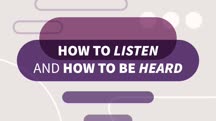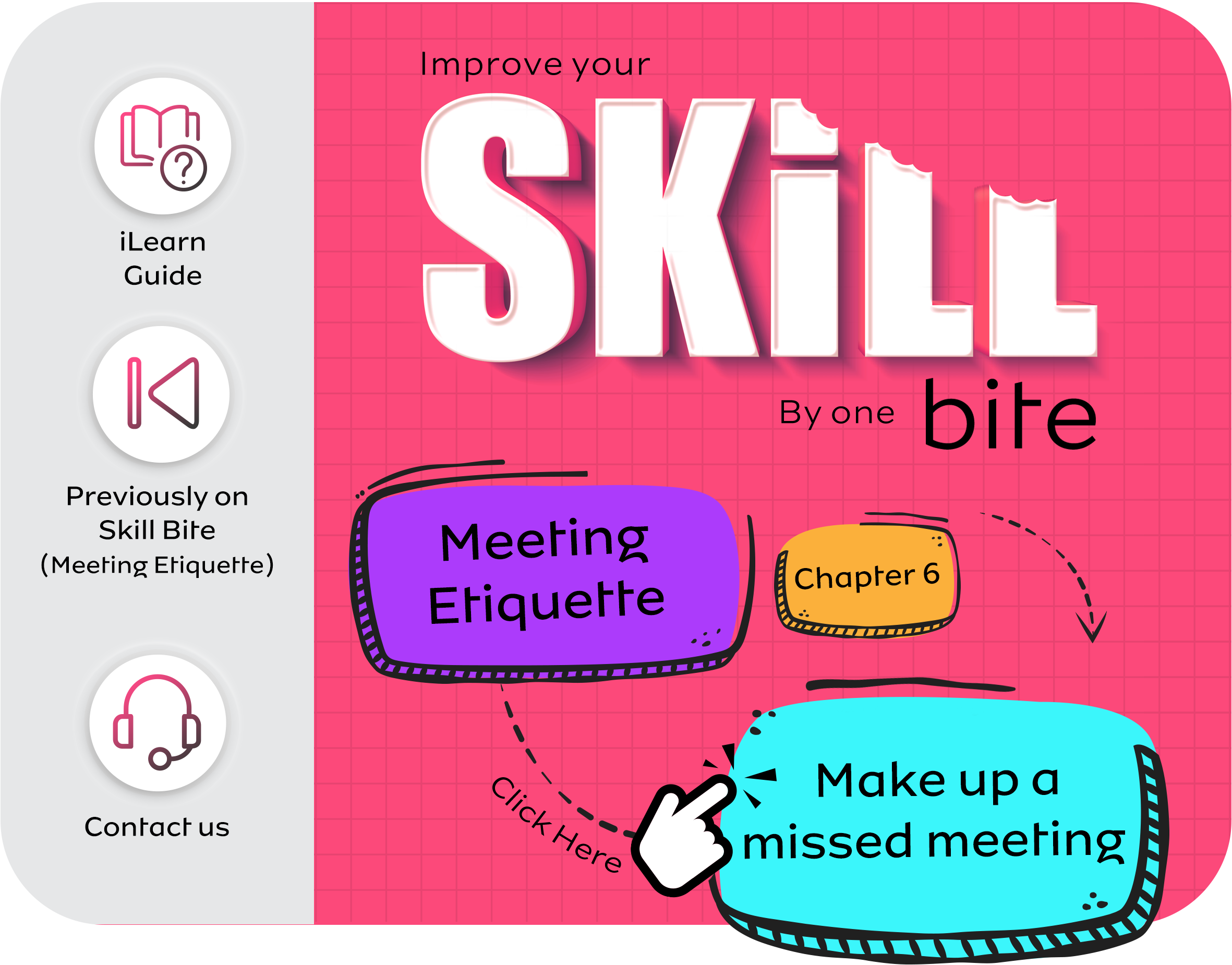Course catalog
Categories
Showing 3,781-3,800 of 9,135 items.
How to Handle Poor Performers (216730)
Patience with poor performance too often becomes permission to perform poorly. Effective leaders know they need to address the problem of poor performance in their company and on their team, but the skills needed to do so don’t come naturally to most of us. In this course, former corporate executive Ron Williams shows you a roadmap for tackling the tough conversations and hard decisions that come with responding to poor performers. Ron explains how to identify and respond to poor performance, as well as exactly how to do it. He covers strategies to recognize the difference between performance and potential and to take swifter, firmer action today with team members who are coming up short.
This course was created by Madecraft. We are pleased to host this training in our library.

This course was created by Madecraft. We are pleased to host this training in our library.

How to Have a Great Day at Work With Caroline Webb (214044)
Learn practical, evidence-based techniques to help you take more control of the quality of your daily working life, regardless of the ups and downs. Best-selling author Caroline Webb briefly goes over the behavioral science that drives your ability to perform and feel at your best, then covers seven building blocks of a good day at work: priorities, productivity, relationships, thinking, influence, resilience, and energy. Each building block includes complementary techniques that can be used in any professional context, with clear and accessible explanations of the science behind the effectiveness of each tool as well as step-by-step guidance on how to apply them in real life. Inspired by and based on Caroline’s global bestseller How to Have a Good Day, the techniques in the course have been tried and tested by more than 100k people around the globe.
How to Have Fewer, Better Meetings (230993)
There are very few absolutes in the world, but it is very likely that no one has ever exclaimed “Oh boy, more meetings!” While it is often important to gather teams and coworkers together to set goals and give status updates, meetings are certainly one area where quality should be stressed over quantity. How many meetings have you attended where the information was redundant, or worse, totally irrelevant to your work? How many meetings have you sat through with no engagement or participation? In this course, Kevan Hall and Alan Hall, authors of, Kill Bad Meetings, show you a systematic process for cutting out at least 50% of unnecessary meetings and designing better, more successful ones. They’ll show you the skills needed to improve the relevance of meeting topics, while increasing meeting engagement and participation. You may think of meetings as a necessary evil, but Kevan and Alan show you that some meetings aren’t even necessary, and those that are needn’t be evil.
How to Innovate and Stay Relevant in Times of Change and Uncertainty
Get a practical guide to innovating and maintaining a competitive edge during times of change and uncertainty.
How to Inspire and Develop Your Direct Reports (210338)
What distinguishes a good leader from an ineffective or even harmful leader? We’ve probably all worked under different kinds of leaders, from a jaded and apathetic leader who goes through the motions and sucks the life out of an environment, to a great leader who constantly tries to take their team and people to the next level. In this audio-only course adapted from the How to be Awesome at Your Job podcast, Jeremie Kubicek talks about what separates a good leader from a bad one. He details the importance of a leader assessing themselves not just in respect to their team at work, but in five key categories: self, family, team, organization, and community. Jeremie also discusses the Support Challenge Matrix, through which one can measure whether someone under you needs more support or challenge. By the end of this course, it will be clear how good leaders manage to multiply the effect of their leadership many times over.
This course was created by Pete Mockaitis of How to Be Awesome at Your Job. We are pleased to offer this training in our library.

This course was created by Pete Mockaitis of How to Be Awesome at Your Job. We are pleased to offer this training in our library.

How to Lead and Inspire Change (215064)
It can be a daunting task to try to initiate positive change in your organization, especially without a plan. Gain a sense of confidence and direction through this course designed for leaders who need to guide a team through organizational change. Internationally renowned speaker and coach Amber Vanderburg teaches you skills to establish relationships, collaborate with others, and initiate, implement, and sustain lasting change. She shares tips for how to inspire others while still conveying a sense of urgency, and provides a framework for how to move through the stages of progress. Join Amber as she shares how to manage and normalize change to create lasting change in your organization.
This course was created by Madecraft. We are pleased to host this training in our library.

This course was created by Madecraft. We are pleased to host this training in our library.

How to Leverage References, Recommendations, and Referrals to Advance Your Career
Learn how to ask for endorsements—references, recommendations, and referrals—to go further at work.
How to Listen and How to Be Heard (getAbstract Summary) (214231)
Companies with diverse, inclusive workplaces perform better. Their employees are more engaged and more productive. In this audio-only course from getAbstract, workplace expert Alissa Carpenter explains how to improve your firm’s inclusivity through better communication and recognition of individual strengths. Her practical, applicable advice on overcoming biases, breaking down silos, boosting engagement and inclusivity, and dealing with uncomfortable situations is relevant to any manager. Alissa also explores ways to build meaningful professional relationships through interactions, celebrating achievements, and defining the roles in a change process.
This audiobook summary was created by getAbstract, one of the world’s largest providers of business book summaries—with more than 20,000 text and audio summaries in seven languages. We are pleased to offer this training in our library.
This audiobook summary was created by getAbstract, one of the world’s largest providers of business book summaries—with more than 20,000 text and audio summaries in seven languages. We are pleased to offer this training in our library.
How to Make Work More Meaningful (228579)
There’s an emptiness that many feel about their work. They are disengaged because they feel that they're not doing what they are supposed to be doing with their life. In this course, instructor Dave Crenshaw helps professionals go beyond “getting stuff done” by adding the element of personal motivation to seemingly mundane workday activities. He explains that performance and outcomes improve when you are more personally connected to the work you do. To accomplish this, Dave explains how to define your personal values and make career and strategic decisions in relation to those values. He shares strategies for creating your personal vision and connecting it to what you do at work. Plus, he provides tips for identifying and celebrating your victories.
This course was created by Dave Crenshaw and Invaluable Inc. We are pleased to offer this training in our library.
This course was created by Dave Crenshaw and Invaluable Inc. We are pleased to offer this training in our library.
How to Manage Feeling Overwhelmed
Stop feeling overwhelmed. Learn how to remain focused, productive, and in control in the face of whatever comes your way.
How to Manage Lean Six Sigma Projects: Part I (214384)
If you are assigned to lead and run a Lean Six Sigma project, where do you start? You need training on how to prepare, plan, and conduct Lean Six Sigma DMAIC projects. In this first of two courses, Dr. Richard Chua—author, professor, consultant and certified Lean Six Sigma Master Black Belt trainer—explains how to identify, select, plan and run Lean Six Sigma projects through the Define and Measure phases of DMAIC, step-by-step using the right tools to complete project deliverables in each phase. For Green Belts or Black Belts, this course shows how to run a project and carry out their responsibilities as a project leader. For executives and managers who are deployment and project champions, this course explains their roles and responsibilities to ensure project success. Checklists, success tips and a Lean Six Sigma DMAIC roadmap are discussed and provided.
Note: This course builds upon prerequisite courses in the Becoming a Six Sigma Green Belt and Six Sigma Black Belt learning paths.
Note: This course builds upon prerequisite courses in the Becoming a Six Sigma Green Belt and Six Sigma Black Belt learning paths.
How to Manage Lean Six Sigma Projects: Part II (214401)
If you are assigned to lead and run a Lean Six Sigma project, where do you start? You need training on how to plan and conduct Lean Six Sigma DMAIC projects. In this second half of two courses, Dr. Richard Chua—author, professor, consultant and certified Lean Six Sigma Master Black Belt trainer—explains how to run Lean Six Sigma projects through the Analyze, Improve and Control phases of DMAIC, step-by-step using the right tools to complete project deliverables in each phase. This course shows Green Belts and Black Belts how to run a project and execute their responsibilities as a project leader, and advises project champions how to understand their roles and responsibilities to ensure project success. Checklists, success tips and a Lean Six Sigma DMAIC roadmap are discussed and provided.
Note: This course builds upon prerequisite courses in the Becoming a Six Sigma Green Belt and Six Sigma Black Belt learning paths. It continues where How to Manage Lean Six Sigma Projects: Part 1 left off.
Note: This course builds upon prerequisite courses in the Becoming a Six Sigma Green Belt and Six Sigma Black Belt learning paths. It continues where How to Manage Lean Six Sigma Projects: Part 1 left off.
How to Manage Your Manager
Learn how to manage your manager. In this course, adapted from the podcast How to Be Awesome at Your Job, Mary Abbajay explains how to build a good relationship with your boss.
How to Motivate Yourself to Do What’s Most Important (232302)
You know you should be doing what's most important, yet oftentimes you don't. No more. Instructor Dorie Clark helps you to understand what's going on and fight back so you can accomplish what you want and need to do. Dorie helps you get in touch with why you want to accomplish something and what’s behind your procrastination. She teaches strategies to reframe your thinking, so that tasks you don’t want to do feel more manageable. She shows ways you can work up enough momentum to break out of your rut. Dorie emphasizes the importance of mapping out your time and how you can allocate it in advance. She covers how to enlist others’ support and how to take that difficult first step. There are multiple smart strategies to get motivated, and Dorie helps you to find the one that works best for you. She concludes with tips on preventing burnout.
How to Network When You Don't Like Networking
Don’t like networking? In this course, adapted from the podcast How to Be Awesome at Your Job, Devora Zack explains why you don’t need to work the room to build great connections.
How to Overcome a Sales Slump (215081)
Success in sales is all about results, and usually the most successful salespeople are making the most noise. This makes it easy to think that if you're not successfully closing and exceeding your targets, then you're not cut out for the profession—but this is not true. All of the most effective sellers have gone through sales slumps and dry spells and have managed to recover to be successful once again. In this course, sales professional and prospecting coach Miles Croft explains clearly and concisely how you can get yourself out of a sales slump and back to winning ways. He explains what to do as soon as you notice the slump, how to rebuild once you've covered the basics, how to then continue moving forward, and then how to maintain this new-found success.
This course was created by Miles Croft. We are pleased to host this training in our library.
This course was created by Miles Croft. We are pleased to host this training in our library.
How to Own a Room (209369)
In the long run, commanding a room means making lasting connections and furthering yourself and your business. In this course, business expert Bianca Lager walks you through exactly how to capture everyone’s attention in the room and own your self-confidence. This course is for everyone from employees to CEOs that struggle to make a lasting impression. Learn how to refine certain skill sets to prepare to own a room, establish a strong presence through your appearance and body language, and practice positivity to overcome any fears. By the end of this course, you’ll have the tools needed to make lasting connections in nearly any room you walk into.
This course was created by Madecraft. We are pleased to host this training in our library.

This course was created by Madecraft. We are pleased to host this training in our library.

How to Perform Business Analysis in a Virtual Environment
Successfully conduct analysis in virtual environments. Learn how to tailor your analysis techniques and approaches to be successful in these new digital domains.



















